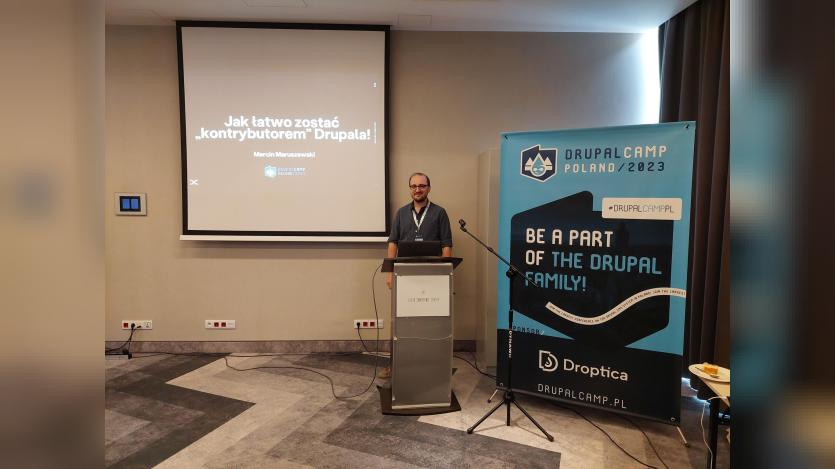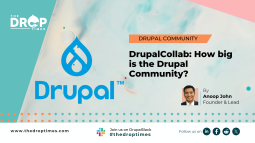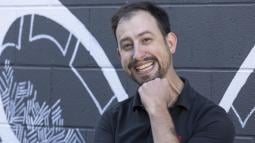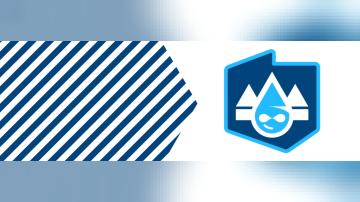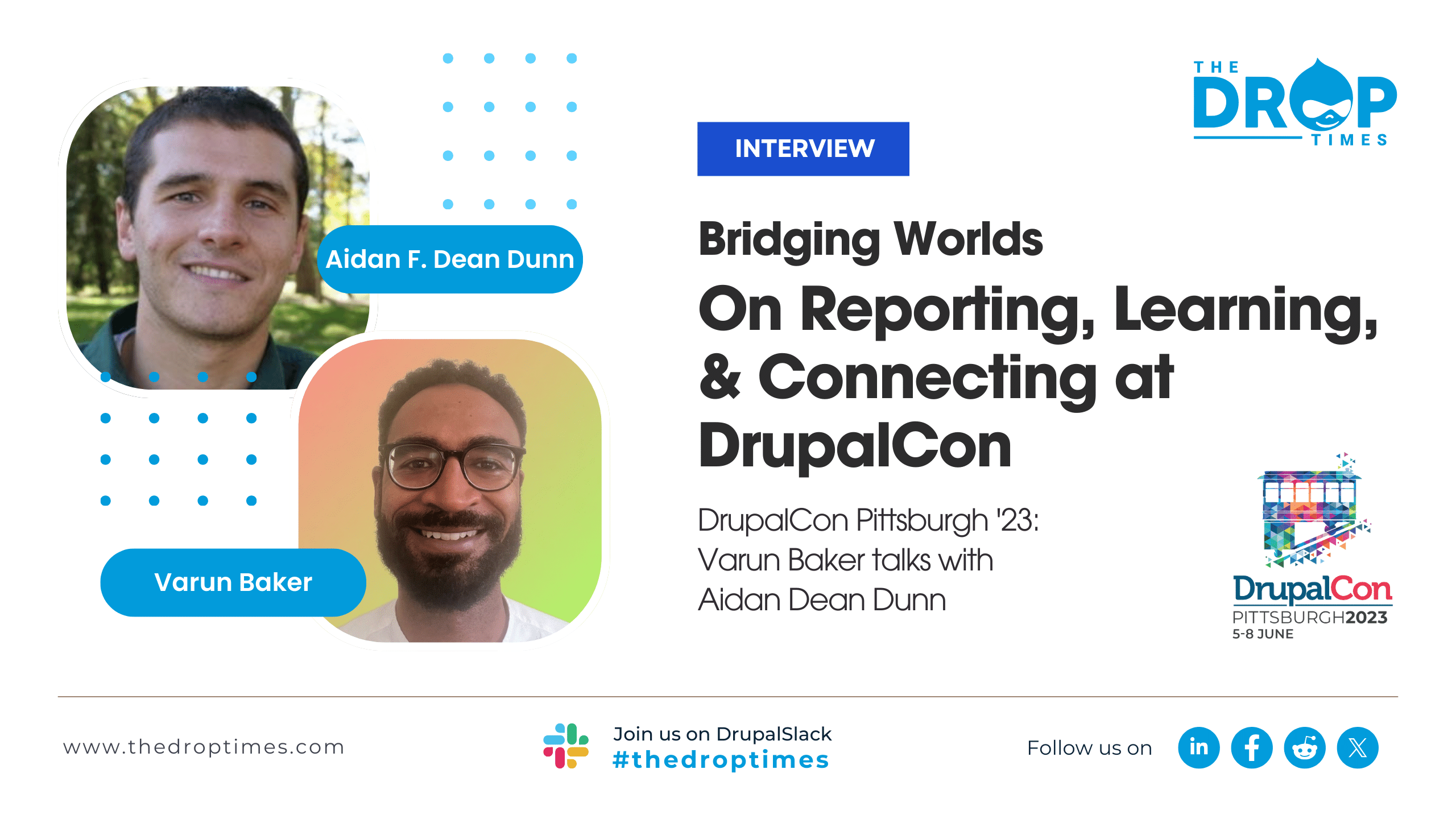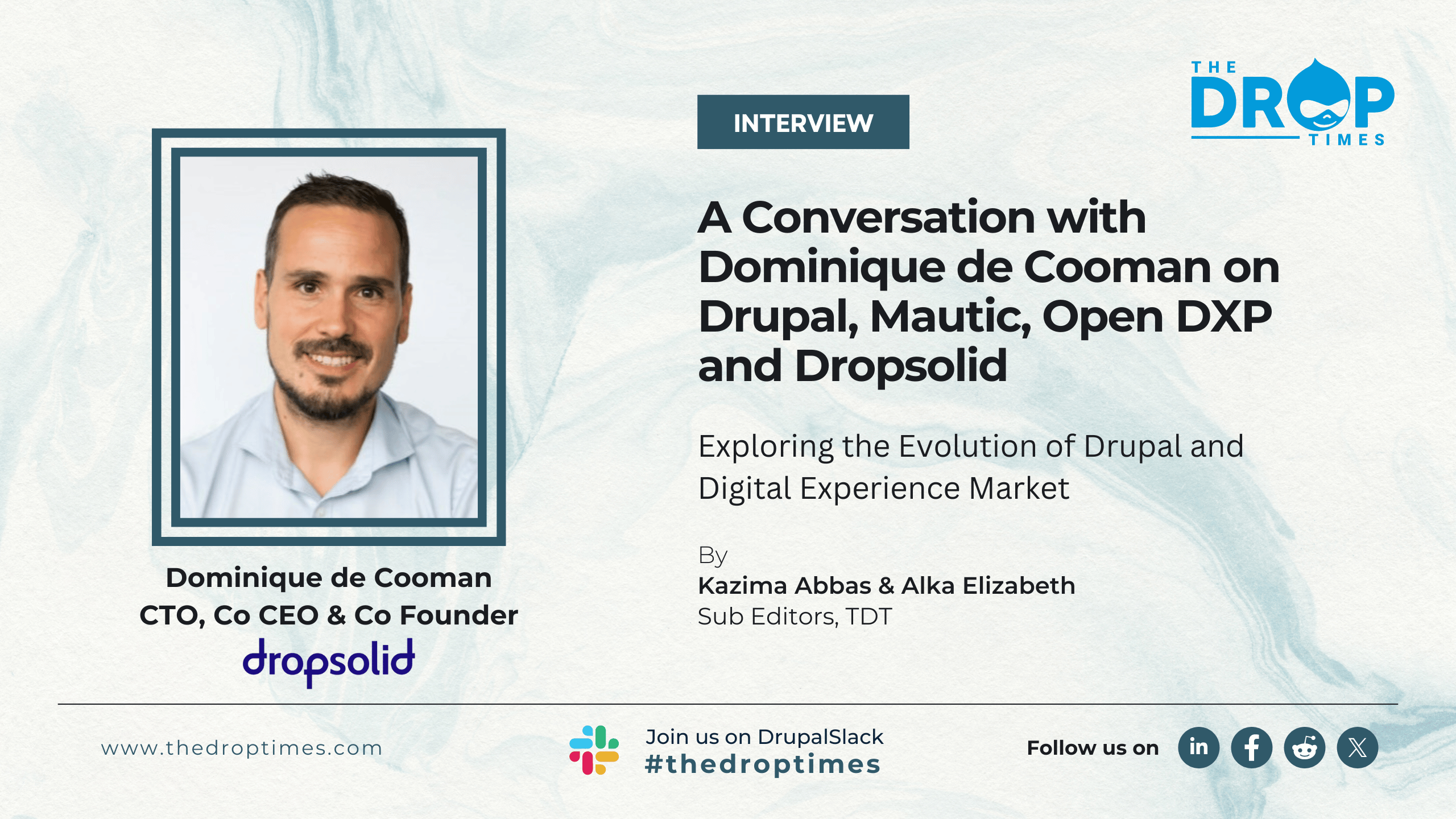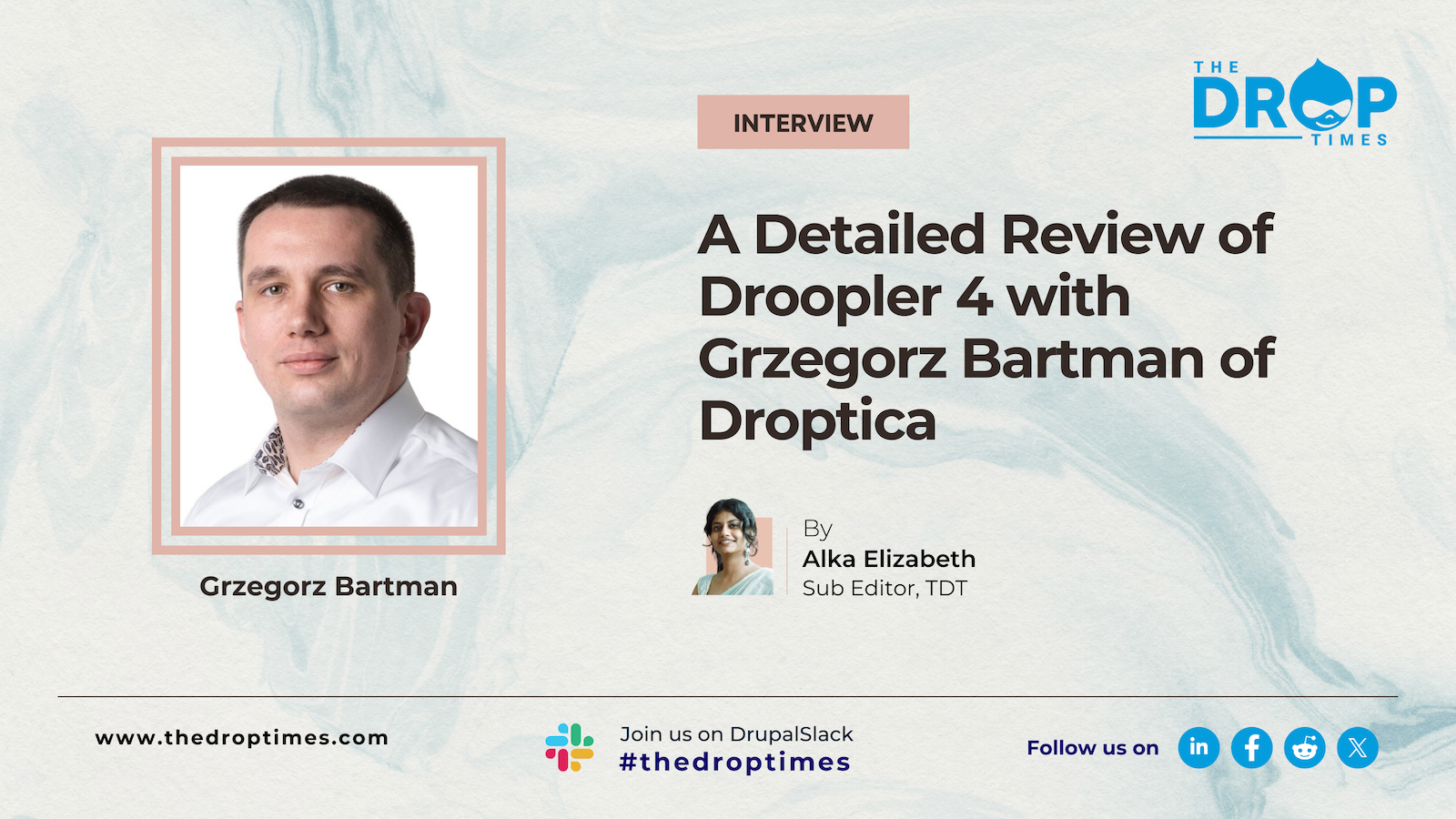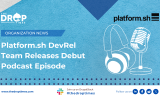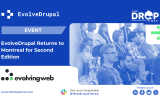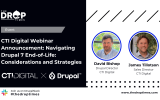Curiosity and Desire Comes First; Marcin Maruszewski | DrupalCamp Poland
Programming is only one aspect towards your career in tech, moreover curiosity and desire could take you far. Marcin Maruszewski stumbled upon Drupal in 2009 and has not looked back. Those words at beginning the are through Marcin's experience in his career.
In this interview, Alethia Rose Braganza, a sub-editor at TDT speaks to Marcin Maruszewski Senior Drupal Developer at Dentsu Creative who was also a speaker at DrupalCamp Poland 2023.
Marcin has had quite the Drupal adventure; as he likes to call it. Starting back in 2009 he was only learning new things in Drupal and webdev, and now he shares with TDT his long running journey with Drupal
Read the completed interview below with Marcin Maruszewski who shares his Drupal experience, the challenging projects he faced and why he decided to speak about becoming a Drupal Contributor DrupalCamp Poland 2023
TDT [1]: Could you please offer a summary of your background? When and why did you decide to pursue a career in Drupal?
Marcin Maruszewski : I started my Drupal adventure in June 2009, a startup by my brother and his colleagues. They ran an educational website for individual investors with daily analyses of listed companies on the WSE.
The site was being developed all the time and I was learning new things in Drupal and webdev in general. So using Drupal wasn't my choice, but I'm very grateful to have worked on this project and learned a lot.
TDT [2]: What advice would you give to someone who is just starting in Drupal development, and what steps can they take to build a successful career in this field?
Marcin : I think the most important element is not the stuff related to programming itself, but rather curiosity and the desire to develop skills. Nowadays, new IT-related developments are popping up all the time and it's often difficult to keep up.
And as for Drupal itself, I think it's worth analysing the code with the xDebug tool. When I first started using it a lot of things in Drupal started to become clearer to me.
It was also important to implement in my code an analysis of the coding standards used by Drupal. They made the transition from Drupal 7 to 8 much easier because the error codes were already explained in the various tutorials I found on the Internet.
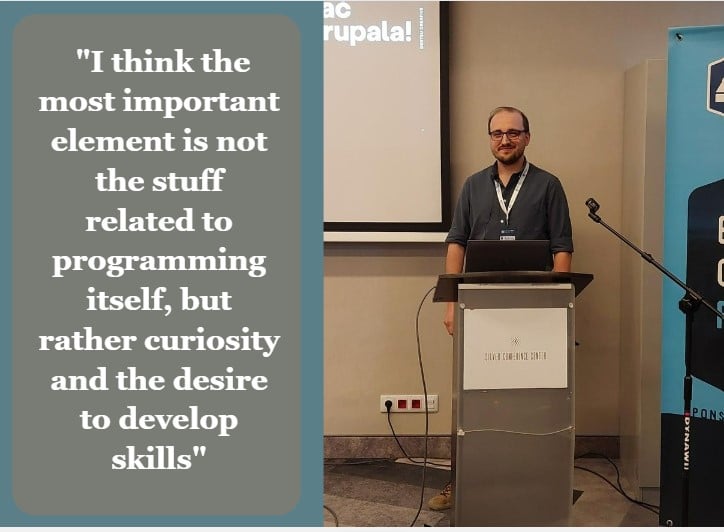
TDT [3]: What are some of the most challenging projects you have worked on as a Drupal developer, and how did you overcome these challenges?
Marcin : The first big challenge was migrating from Drupal 5 to 7. I wrote my module based on the Batch API to copy various data from one Drupal instance to another. It's a shame that there was no Migrate API back then because it would have made my job a lot easier.
The next challenge was to create a quiz site. At first, it seemed that the Opigno LSM distribution was the way to go. Unfortunately, it turned out that the client's requirements didn't quite match the structure of that distribution, so we had to do a lot of combining to meet the client's needs.
Later, when Drupal 8 came out and I was already quite familiar with its API and available features, I think most projects were much easier to implement.
TDT [4]: How do you stay current with the latest trends and updates in the Drupal community, and what resources do you rely on for learning and development?
Marcin : I try to follow various people and organisations on social media (Facebook, Twitter, Reddit) and subscribe to the TheWeeklyDrop mailing list. I also look forward to every Driesnote at DrupalCon and then to the recordings of the various talks that are given.
TDT [5]: What are the key skills and qualities that you believe are essential for success as a Drupal developer, and how have you developed these skills over time?
Marcin : I think the most important thing is curiosity. I've often stayed up nights trying to solve a problem or learn a new tool - I'm not saying you need to have sleepless nights, because maintaining a work-life balance is also very important.
I also believe that being a Drupal developer is more than just writing code in PHP and setting up new views in the UI. I enjoy things related to web server administration, Docker, Linux and more recently NextJS. Gaining and using this knowledge has helped me a lot, so I encourage everyone to leave the "Drupal comfort zone" and start learning new things that are more or less related to Drupal.
Of course, this approach may mean that you will not become a number 1 Drupal expert, but just a very advanced user. However, it will also give you experience that you can use in other related areas.
TDT [6]: Can you share an example of a particularly innovative or creative solution that you developed using Drupal, and what impact did it have on the project or client?
I don't think my job as a Drupal developer now requires a very innovative approach. And that's all thanks to the continued evolution of Drupal and its entire community. Most things are in Drupal Core and the missing pieces are provided by contrib modules, so my job is to use and combine them so that we get the best of Drupal for our clients.
TDT [7]: You've worked with Drupal since the time of Drupal 5. How do you stay up-to-date with the latest trends and technologies in the Drupal community, and how do you incorporate them into your work?
It was very important for me to discover the DrupalCon conferences, where Dries presents information about the development of Drupal. In Poland, where I live, there are also local meetups and Drupal camps, which I've been attending for several years. They give me the opportunity to develop and, more importantly, to meet other developers with whom I can share my experiences.
But it's not easy to use new features in existing projects. I am still working on Drupal 7 sites and there are no plans to upgrade to Drupal 9/10. Some of these sites will even leave Drupal for other cloud-based content management solutions and JS frameworks. But when it comes to new projects, my team is always trying to sneak some fancy features into the project.
TDT [8]: Congratulations on the Acquia Site Builder Certification. Can you tell me about your preparation process for the exam? and How has obtaining the Acquia Certified Site Builder - Drupal 9 certification impacted your career and professional development?
Thank you so much! I found all the material I needed on the drupalize. my website. As far as I remember there is a study plan for this certificate and it was free!
But honestly, as a senior Drupal developer, I do not always remember where to find some specific settings, so I think the learning path was quite challenging. Some of the questions in this exam are about where in the admin panel can I set this or that option. At the moment most of my work involves coding and some configuration is also done in code, so it was an excellent lesson to remember some basics and it was great.
I think that by getting this certificate I just wanted to make sure that people in my organisation and the Drupal community would be confident that they could pass on my Drupal knowledge.
TDT [9]: Being a speaker, Could you brief us about your presentation 'How easy it is to become a Drupal "contributor"?' What Inspired you to prepare on this topic for DrupalCamp Poland
A few months ago I was looking for a solution for a remote development environment. I found several approaches, but one of them, the Gitpod, was quite interesting. Then I found out that Ofer Shaal has created a tool called DrupalPod with an additional browser plugin that helps spin up an environment based on Drupal core/module/theme issues.
I found it very interesting because I remember my first steps when I tried to create some patches for Drupal 7-based modules and it was quite painful. Thanks to DrupalPod, everything is a breeze.
So in my talk, I briefly described the Drupal approach using GIT and the GitLab implementation that started around 2019. Then I showed how to create a problem in the Drupal system, try to fix it using DrupalPod, and create a patch or merge request in GitLab.
I also wanted to emphasise the important role of contributors and the work of Dries. I would not be where I am without people like Dries. And I'm very grateful for that.
Related Event Sessions
Disclaimer: The information provided about the interviewee has been gathered from publicly available resources. The responsibility for the responses shared in the interview solely rests with the featured individual.
Note: The vision of this web portal is to help promote news and stories around the Drupal community and promote and celebrate the people and organizations in the community. We strive to create and distribute our content based on these content policy. If you see any omission/variation on this please let us know in the comments below and we will try to address the issue as best we can.



